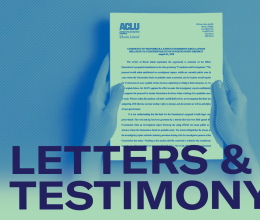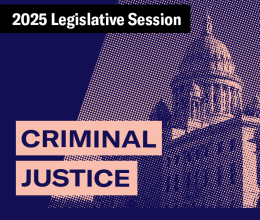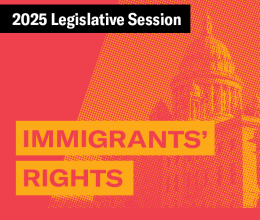In a victory for government transparency and accountability, as well as protection of the sanctity of the attorney-client privilege, the RI Department of Corrections (RIDOC) has acknowledged its obligations to follow the public rule-making provisions of the state’s Administrative Procedures Act (APA) in revising its policies governing prison mail and visitation, and also to protect the privacy of mail exchanged between prisoners and attorneys.
This development is the result of a lawsuit filed in October 2024 by ACLU of RI cooperating attorneys Sonja Deyoe and Lynette Labinger, after the RIDOC had unilaterally adopted policies that allowed prison staff to open, copy, and withhold privileged mail between prisoners and attorneys, and required visitors to submit to having their photographs taken for a RIDOC database. The lawsuit argued that any changes to prison rules that affected the public, such as those governing mail and visits, had to be formally promulgated in accordance with the APA, an important – though often unheralded – state law requiring state agencies to adopt rules and regulations only through a public-involved rulemaking process.
In advance of a court hearing that had been scheduled for later this week, the RIDOC agreed to halt the visitor photograph protocol, and enacted changes to its mail policy in accordance with APA provisions that allow rules to temporarily take effect in emergency situations before initiating a public rule-making process. The RIDOC claimed the emergency rules were necessary to address “an urgent need to implement enhanced security measures to detect and address potential threats related to contraband, including but not limited to … chemically treated paper.” Importantly, however, the emergency rules address the ACLU’s objections to the original policy by explicitly barring the opening or reading of privileged mail. Instead, mail will remain unopened and be scanned through a machine that can purportedly detect the presence of drug-laced paper. After 120 days, the temporary emergency rules will expire and be subject to a public hearing. The case remains pending.





